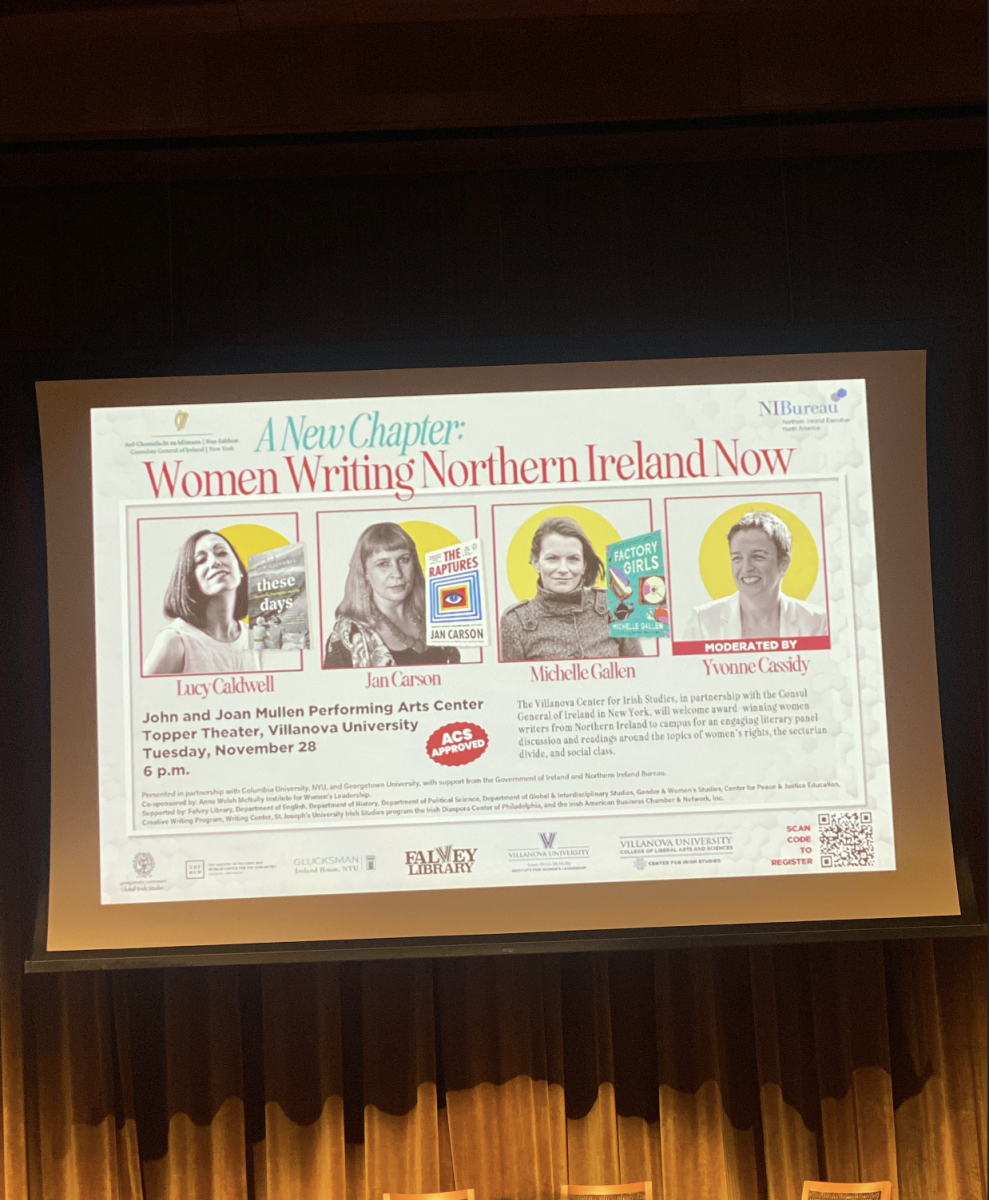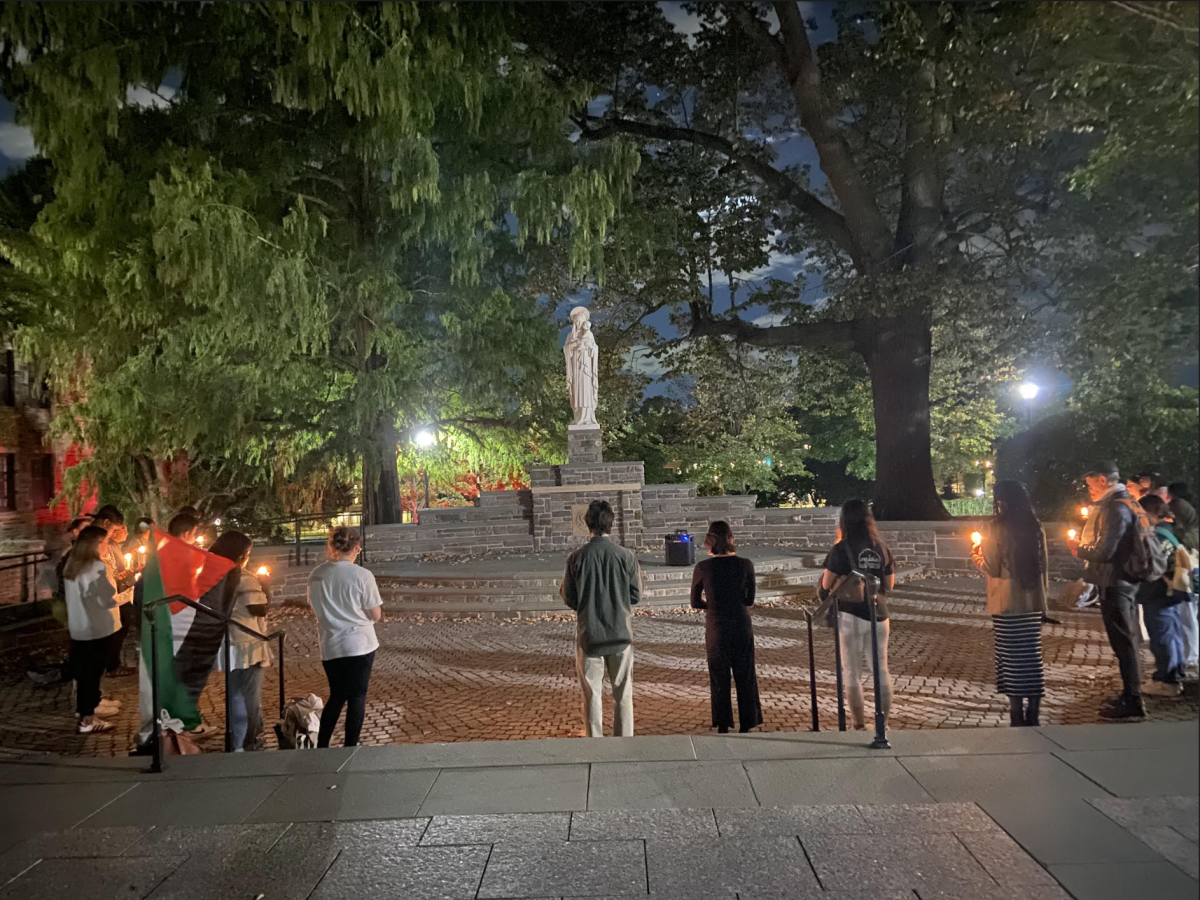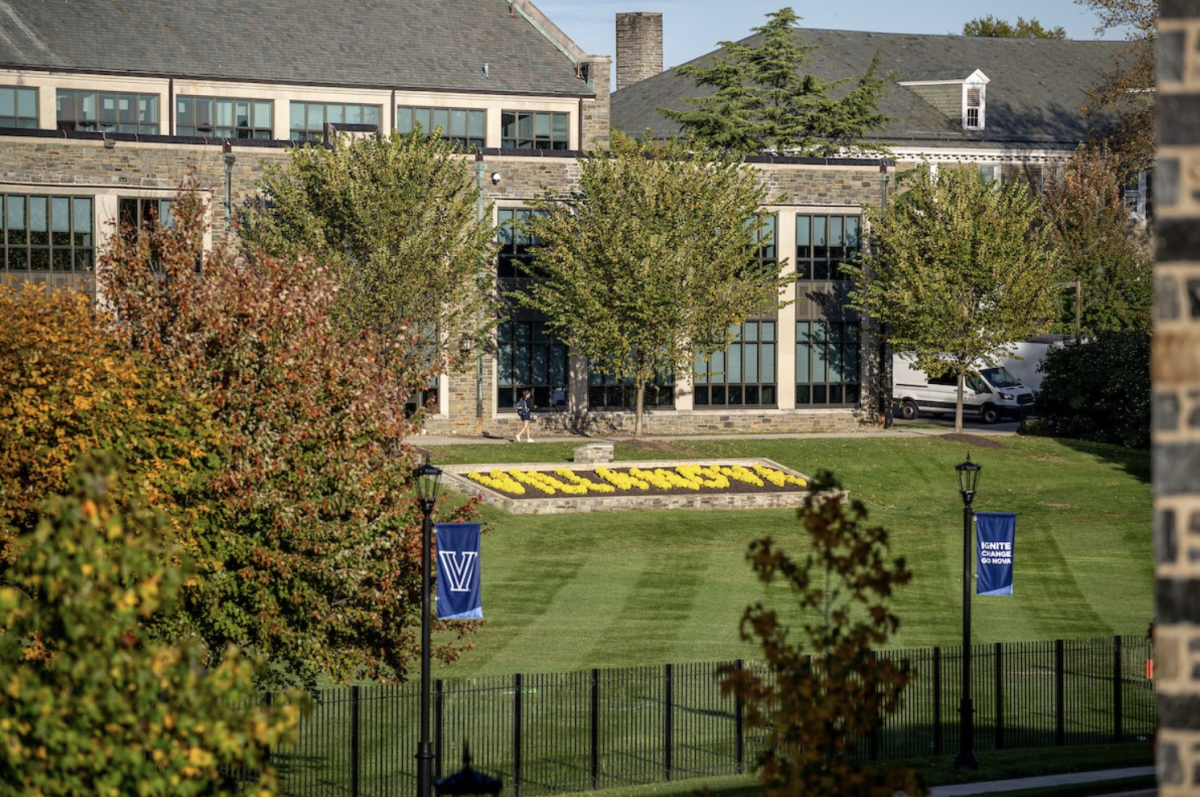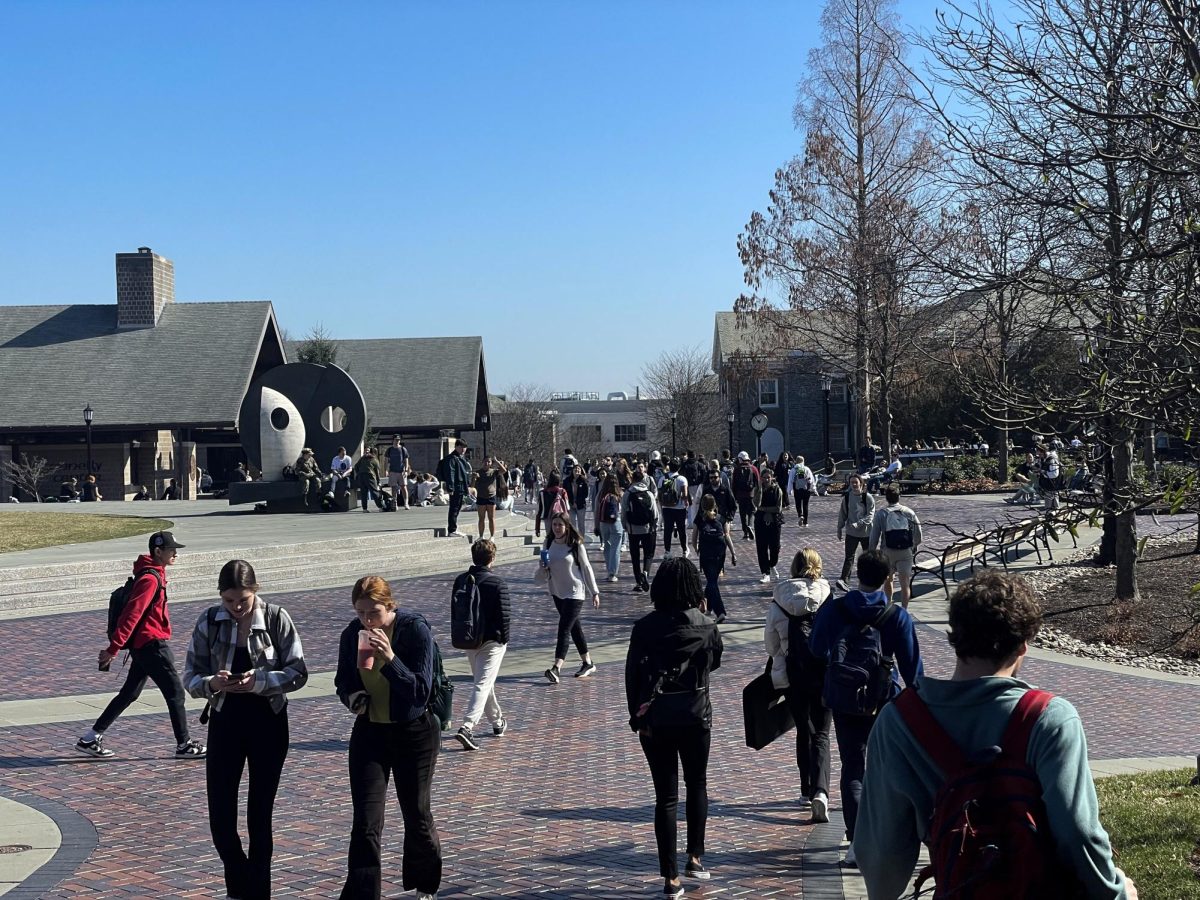On Tuesday, Nov. 28th, the Center for Irish Studies hosted the event “A New Chapter: Women Writing Northern Ireland Now,” featuring a panel of authors Lucy Caldwell, Jan Carson and Michelle Gallen, moderated by author Yvonne Cassidy.
Helen Nolan, the Consul General of Ireland in New York, started the event. She noted the importance of looking at the progress made for Northern Ireland “through the prism of culture and literature,” highlighting the event’s goal.
Each author was then invited to speak about their latest work and read an excerpt from them. Caldwell, who is from Belfast, began by speaking about the influence of the 2015 equal marriage referendum, which caused her to ask, “Where are the stories of the young women in love?” As someone “trying to tell stories you might not expect,” Caldwell combined women’s new roles with the idea of women in love in her novel, These Days. The novel is centered around two sisters during the Belfast Blitz, one of which is a first aid volunteer in love with another woman. Caldwell’s excerpt illustrated their emerging relationship, but also the heartbreaking understanding that they are unable to truly be together.
Carson’s novel, The Raptures, is set in 1993 in a village resembling Ballymena, the Northern Ireland town where Carson was raised. The story features Hannah, a young girl living in a fundamentalist Protestant household. Though The Raptures is a rather dark horror, Carson says the story is actually “quite funny.” Carson’s chosen section describes Hannah’s inability to find answers to her developing questions and highlights a child’s perspective on the violence of The Troubles.
Gallen’s novel Factory Girls features three girls who take on factory jobs in the summer of 1994 while waiting on their university entrance exam results. The excerpt portrays one of the girls, Maeve, leading the other students in a sort of rebellion against an English band who come to their school to perform cliche songs about peace.
The next portion of the event focused on the backgrounds of the authors, as women who grew up during The Troubles. Like her protagonist, Carson grew up in a strict but apolitical Protestant household. “We didn’t vote in our house, we didn’t get involved in politics or the world in any way,” Carson said, speaking on how she was raised to be somewhat sheltered from outside perspectives. She credited arts and culture with starting her journey of awareness.
Caldwell, born to both an Irish Protestant father and an English Catholic mother, spoke about how in a nation still maintaining aspects of segregation, there is a constant desire to classify people, including her. The Good Friday Agreement allowed her to embrace both sides of her identity but this doesn’t tell the whole story about her. “My whole thing has always been about complicating the picture, complicating the narrative,” she said.
Gallen spoke about the lack of optimism in her community after the Agreement due to the harsh violence and underdevelopment they had been facing for years. However, she believes things really have changed for the better, after all. “It’s so much nicer when people aren’t getting blown up,” Gallen said.
Following this, the authors were asked about the intergenerational mother-daughter experience in their novels, and how they each used it as a device to show what had changed for women and what hadn’t. Caldwell spoke to the generational disconnect between mothers and their daughters, demonstrated by conflict in her novel between Emma and her disapproving mother.
Gallen spoke about one of her previous works, Big Girl, Small Town, in which the protagonist Majella is unable to understand her opioid addicted mother’s past of abuse and her grief at the loss of her husband, an IRA soldier.
Carson noted how in Factory Girls, Maeve’s mother was forced to leave university during the civil rights movement, and Maeve is unable to understand her anger. Carson highlights what women were able to achieve, what they did achieve, and “what you were able to achieve if you didn’t use contraceptives.”
Each author then gave out valuable advice for any potential writers in the audience. Gallen’s was simple: don’t quit writing, quit everything else. Caldwell urged the audience to remember that everyone has a “treasure trove of stories,” that only they can tell, and to not disavow these in favor of trying to imitate others. Carson reminded the audience that the world isn’t waiting to hear the story, so stories won’t get written unless there is self-motivation and writers overcome their fears of writing a terrible first draft.
The event concluded with an audience Q&A which featured questions about how the authors knew that writing was their passion and purpose, why Carson hates writing female characters and how to balance not getting too attached to a draft while still keeping it personal.
Ultimately, this panel was a remarkable opportunity for students to gain insights into the complex cultural and historical influences behind literature giving a voice to an often overlooked community.







